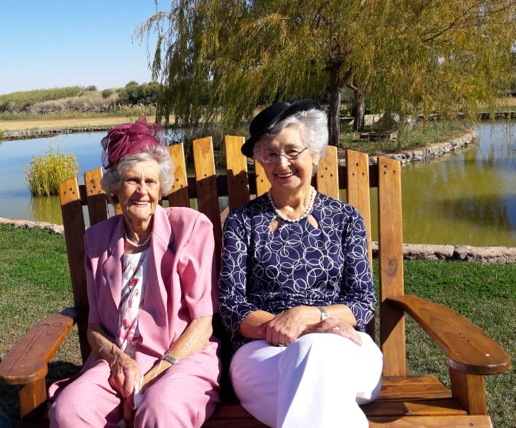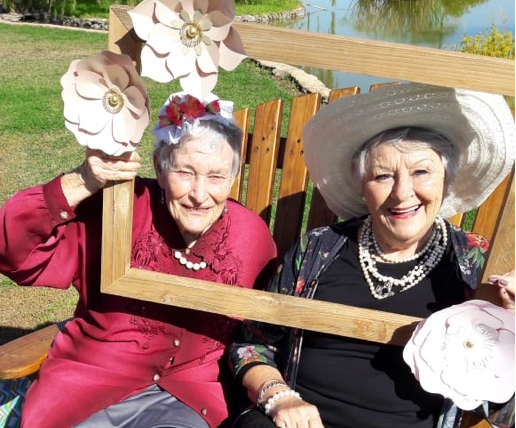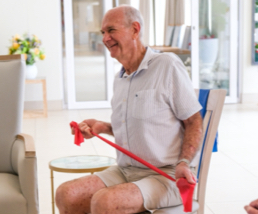
High levels of social stress have been established through research as associated with fractures in postmenopausal women. New research has pointed to bone loss as a process in this relationship.



Stress and Bone Loss
Many people, especially women, experience osteoporosis as they get older. The onset of menopause precipitates the issues. Osteoporosis then becomes a public health concern, as people with the condition are more at risk for falls and subsequent fractures.
Stress is when you are unable to cope with the condition at hand. It could be any combination of psychosocial events, including loss of positivity, loss of satisfaction with life, or education level that is a precursor to bone loss. It includes the release of stress hormones as the physiological response.
For six years, 11,020 women from the Women’s Health Initiative (WHI) were studied to investigate if poor quality socialization, or psychosocial stress, was related to bone loss in these women. The findings of the six-year follow-up study were published in the Journal of Epidemiology and Community Health.
Many people, especially women, experience osteoporosis as they get older. The onset of menopause precipitates the issues. Osteoporosis then becomes a public health concern, as people with the condition are more at risk for falls and subsequent fractures.
Stress is when you are unable to cope with the condition at hand. It could be any combination of psychosocial events, including loss of positivity, loss of satisfaction with life, or education level that is a precursor to bone loss. It includes the release of stress hormones as the physiological response.
For six years, 11,020 women from the Women’s Health Initiative (WHI) were studied to investigate if poor quality socialization, or psychosocial stress, was related to bone loss in these women. The findings of the six-year follow-up study were published in the Journal of Epidemiology and Community Health.
Link Between Bone Density, Stress, and Social Activity
The scientists looked at separate bone density data from enrollment in the WHI, to six years following. Women were evaluated for stressors related to death of a family member, divorce, abuse, chronic health conditions, and financial strain. The subjects were asked to fill out an informational sheet about their level of stress as it relates to their social activity. The researchers looked at social support, strain, and functioning. Over the six years, they compared data related to the three areas
.
Research findings provide evidence that social stress does decrease BMD over a six-year period in women following menopause. These findings correlate with previous findings that social stress increases fractures, as BMD and fracture risk are related.
Subjects lost density of bone in the femoral neck (0.082%), total hip (0.108%) and lumbar spine (0.069%). The researchers evaluated participants for factors that might influence the study, such as history of a fracture after the age of 55, age, education, other conditions, weight and Body Mass Index (BMI), smoking, excess use of alcohol, hormone treatments, age at menopause and lack of physical activity.
The scientists looked at separate bone density data from enrollment in the WHI, to six years following. Women were evaluated for stressors related to death of a family member, divorce, abuse, chronic health conditions, and financial strain. The subjects were asked to fill out an informational sheet about their level of stress as it relates to their social activity. The researchers looked at social support, strain, and functioning. Over the six years, they compared data related to the three areas
.
Research findings provide evidence that social stress does decrease BMD over a six-year period in women following menopause. These findings correlate with previous findings that social stress increases fractures, as BMD and fracture risk are related.
Subjects lost density of bone in the femoral neck (0.082%), total hip (0.108%) and lumbar spine (0.069%). The researchers evaluated participants for factors that might influence the study, such as history of a fracture after the age of 55, age, education, other conditions, weight and Body Mass Index (BMI), smoking, excess use of alcohol, hormone treatments, age at menopause and lack of physical activity.
Why the Research Findings Make Sense
Stress is already linked to many chronic diseases, including cardiovascular disease, diabetes, and some cancers. The alterations in bone mass seen in the study may also suggest high levels of cortisol, thyroid and growth hormones, along with glucocorticoids.
Stress is already linked to many chronic diseases, including cardiovascular disease, diabetes, and some cancers. The alterations in bone mass seen in the study may also suggest high levels of cortisol, thyroid and growth hormones, along with glucocorticoids.
Blue Zones and Bone Loss
Our research in the original blue zones regions around the world shows that a strong social network and sense of community including family and friends is linked to better longevity and overall health. This new study supports some of the “how” and “why” to what we know is true.
Our research in the original blue zones regions around the world shows that a strong social network and sense of community including family and friends is linked to better longevity and overall health.
The researchers suggest that their findings would support the building of community social stress interventions in post-menopausal women to decrease bone mass density loss. In our work in Blue Zones Project communities, building in-person networks and social activity is part of how we improve well-being in entire populations.
In addition, researchers suggest screening programs for Bone Mass Density, exercise programs to encourage weight-bearing and building of calcium in bones to prevent osteoporosis, and encouragement of regular health check-ups to evaluate bone density and the need for treatment for low Vitamin D and calcium levels.
Our research in the original blue zones regions around the world shows that a strong social network and sense of community including family and friends is linked to better longevity and overall health. This new study supports some of the “how” and “why” to what we know is true.
Our research in the original blue zones regions around the world shows that a strong social network and sense of community including family and friends is linked to better longevity and overall health.
The researchers suggest that their findings would support the building of community social stress interventions in post-menopausal women to decrease bone mass density loss. In our work in Blue Zones Project communities, building in-person networks and social activity is part of how we improve well-being in entire populations.
In addition, researchers suggest screening programs for Bone Mass Density, exercise programs to encourage weight-bearing and building of calcium in bones to prevent osteoporosis, and encouragement of regular health check-ups to evaluate bone density and the need for treatment for low Vitamin D and calcium levels.
Related to falls, there should be evidenced-based programs related to fall prevention, Tai Chi for balance, or Geri-Fit. These programs should be offered at senior and community centers, along with Innovative Support Groups to Help Women Aging Alone. In addition, both children and adults alike, should:
By Elisabeth Almekinder, Health Journalist, Registered Nurse, and Diabetes Educator for the Manos Unidas North Carolina Farmworker Health Program
- Avoid poor nutrition, strict diets (get treatment for eating disorders)
- Eat a healthy diet with enough calcium per day
- Participate in regular physical activity that involves weight-bearing exercise
- Get checked by your healthcare provider for a Vitamin D deficiency and for calcium deficiencies
- Don’t smoke and stay away from secondhand smoke
- Avoid drinking alcohol to excess
By Elisabeth Almekinder, Health Journalist, Registered Nurse, and Diabetes Educator for the Manos Unidas North Carolina Farmworker Health Program
